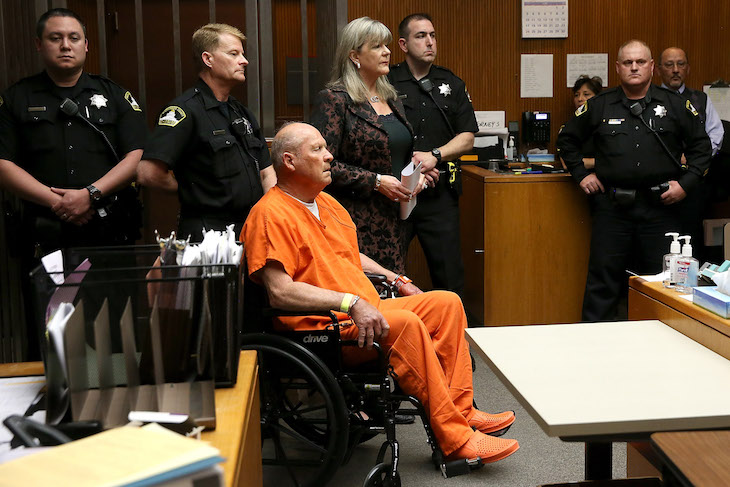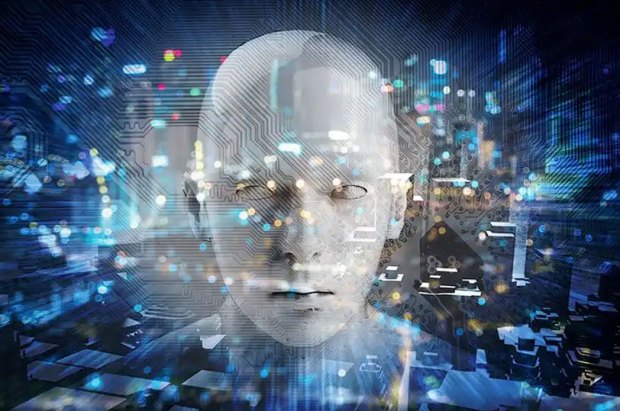Nearly ten years ago, a lorry driver known only as ‘Michael Harry K’ adopted an extreme response to combating what he saw as declining standards on the autobahns: he started shooting at other vehicles. In a four-year spree he fired around 700 rounds at cars and trucks before his arrest in June 2013.
What helped him evade justice for so long was the same thing that prevents us learning his full name: German privacy laws. Trucks pay tolls on autobahns, and so CCTV records the number plates of vehicles passing through toll booths. After the first 30 shootings, it could have been a routine procedure to identify the one vehicle in the right places at the right times. But the police were not allowed to see the data.
It’s hard to imagine this happening in Britain. But then one difficulty with privacy legislation is that our conception of privacy is very much culturally dependent. The Germans happily carry identity cards; Brits find them mildly repugnant. In Finland you can find out what anyone earns by simply calling the tax authority. In Switzerland you can use a website to find out someone’s home address from their car registration number. In France they abandoned the practice of sending evidential photographs to speed-camera offenders, as they often revealed hard-to-explain companions in the passenger seat. The British are weirdly relaxed about CCTV. Overall we seem almost arbitrarily to care about some things and not others.
But if data privacy questions are a minefield, DNA privacy is a nightmare. Four weeks after The Spectator reviewed the late Michelle McNamara’s book I’ll Be Gone in the Dark, Sacramento police announced the arrest of a man for the crimes which had consumed the author’s life. These were an escalating series of house-breakings, home invasions, rapes and 12 murders which took place in California from 1974 to 1986, attributed to ‘Ear-Ons’ — the East Area Rapist and Original Night Stalker.
Although for years online sleuths had been theorising about suspects, most amateur and professional detectives had concluded that the best chance for identifying the killer lay in familial DNA — finding a near DNA match with a close relative. If, as many assumed, Ear-Ons had died or emigrated (it is rare for serial killers to quit voluntarily), this might be the only option. Since the killer and his relatives did not appear on any law enforcement DNA databases, genealogical websites were the only hope.
Most commercial sites (such as Ancestry.com) usually will not cooperate in such enquiries. In the end, it seems likely that an open-source DNA project called GEDmatch provided the breakthrough — identifying a likely great-great-great grandparent of the killer from the early 1800s, thus allowing investigators, by a process of geographical elimination, to arrive at one Joseph James DeAngelo, 72.
It’s a strange world where you can upload data hoping to find your ancestors, only to condemn a cousin to life imprisonment. Are we entirely comfortable with this? And is there perhaps an even better reason to keep your DNA to yourself?
If, as a friend of mine did, you try to nick a used ‘President of the United States’ paper cup as a souvenir for your kids, you won’t get far. A naval detachment accompanies the US president everywhere, charged with preventing access to his DNA, sanitising or destroying anything he touches. The benign explanation? To prevent the planting of false evidence. The sinister one? To prevent bio-assassination by, say, a biologically engineered killer flu fatal only to your one intended target.
Got something to add? Join the discussion and comment below.
Get 10 issues for just $10
Subscribe to The Spectator Australia today for the next 10 magazine issues, plus full online access, for just $10.
You might disagree with half of it, but you’ll enjoy reading all of it. Try your first month for free, then just $2 a week for the remainder of your first year.















Comments
Don't miss out
Join the conversation with other Spectator Australia readers. Subscribe to leave a comment.
SUBSCRIBEAlready a subscriber? Log in